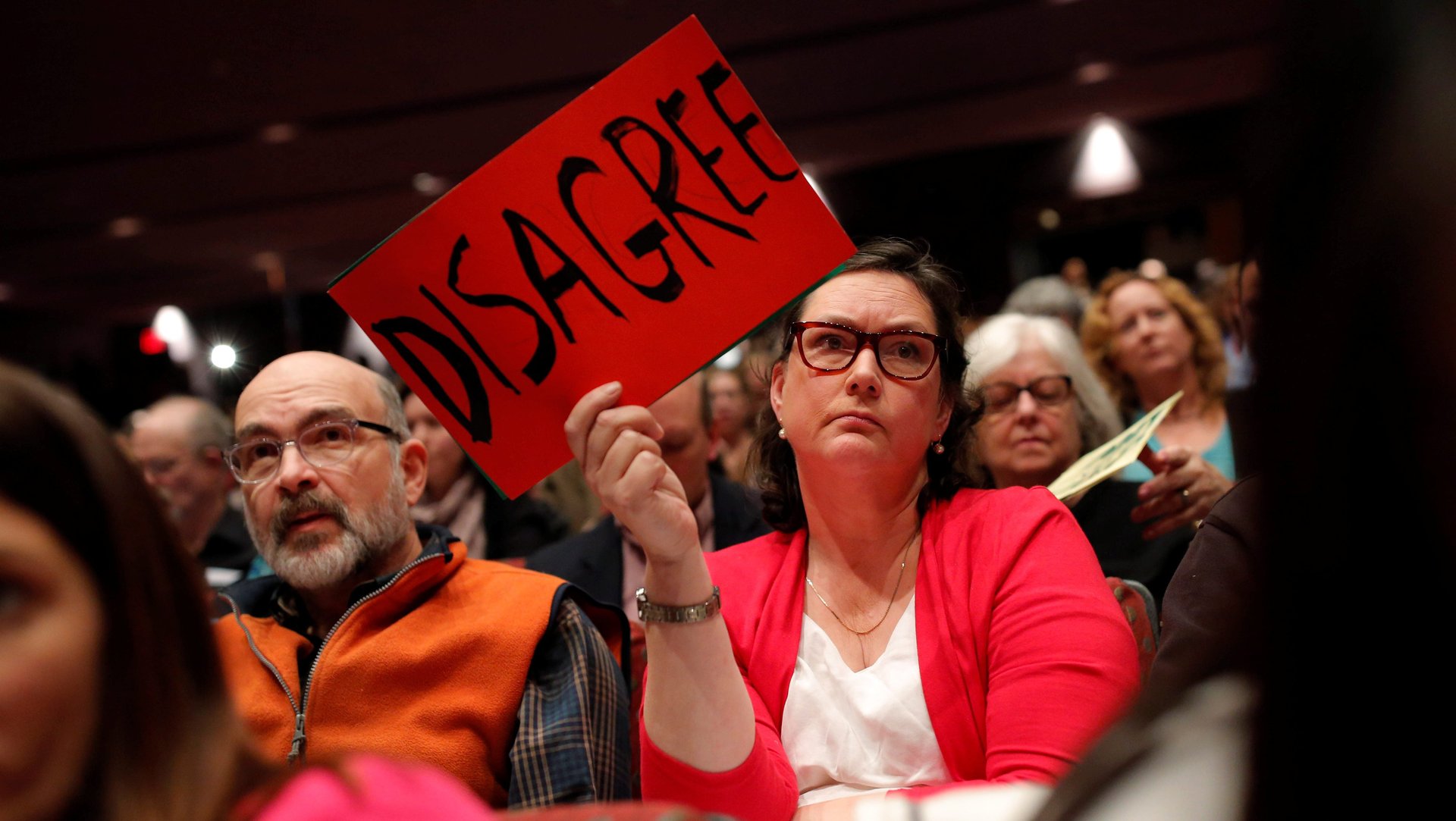The GOP playbook for dealing with furious voters: Complain about bullying, or don’t show up
It hasn’t been an easy February recess for congressional Republicans. At open-mic meetings with constituents organized in their home districts, they have been facing tough questions and outright jeers from large crowds of angry voters who want them to stand up to the Trump administration.


It hasn’t been an easy February recess for congressional Republicans. At open-mic meetings with constituents organized in their home districts, they have been facing tough questions and outright jeers from large crowds of angry voters who want them to stand up to the Trump administration.
The GOP lawmakers’ reaction to the boisterous masses—largely progressive constituents who are following in the footsteps of anti-Obama, Tea Party-organized protests in 2009—has ranged from outright refusal to show up, to complaints that they are being victimized by “paid” organizers.
Rep. Jason Chaffetz of Utah was one of the first congressmen to face unhappy crowds at a town hall, where was booed after dodging a question from a young girl who asked whether he believed in science. Later, Chaffetz complained that the crowds at his meeting were “a paid attempt to bully and intimidate,” without any evidence to support his claim.
This was echoed by comments from White House press secretary Sean Spicer, who said during a press briefing on Wednesday that the protests were a “hybrid” of some people that “are clearly upset” and ”a bit of professional protestor, manufactured base in there.”
Nevada senator Dean Heller tried to pre-empt unflattering soundbites like Chaffetz’s:
Louisiana senator Bill Cassidy described his town hall as “fun” despite being repeatedly shouted down and heckled. He wanted to give a PowerPoint presentation about his plan to replace the Affordable Care Act and ask questions written down on indehttps://twitter.com/gregorywallace/status/834530864864321536x cards, Think Progress reported.
A number of Republican lawmakers simply didn’t show up to town halls organized by constituents, or refused to hold them in the first place. Representative Louie Gohmert of Texas said that instead of a face-to-face meeting with his voters, he would host phone-in town hall meetings, because he was afraid of violence.
“At this time there are groups from the more violent strains of the leftist ideology, some even being paid, who are preying on public town halls to wreak havoc and threaten public safety,” Gohmert said in a statement. He brought up the 2011 shooting of former Democratic congresswoman Gabby Giffords as a justification to avoid public appearances.
Ohio Congressman Pat Tiberi said he was unavailable to attend:
California Rep. Darell Issa, who has released a draft proposal of an Obamacare repeal, did not show up to a town hall on the topic, although he did speak to some protesters outside his office.
Senator Cory Gardner from Colorado declined an invitation to a citizens’ meeting from a woman who was inspired by the Indivisible Guide, a guide for anti-Trump resistance that has turned into a national movement which is behind many of these town hall gatherings.
With Gardner unavailable, The New Yorker reported, a volunteer answered questions from the audience, citing his positions, even drawing gentle boos from the audience.
Joni Ernst, Republican from Iowa hoped to avoid the crowds by organizing a meeting on a very specific topic—veterans issues—in a rural area in a small space.
The lawmakers that did attend town halls in their areas had heated exchanges with voters.